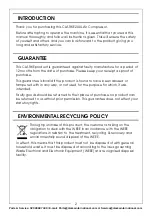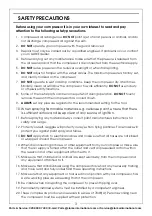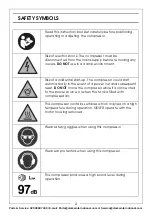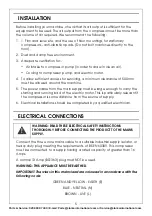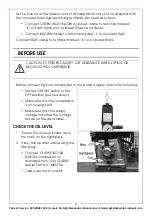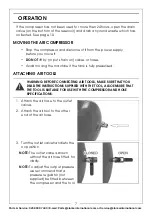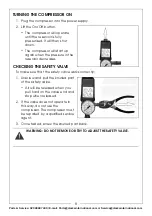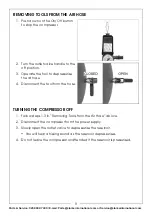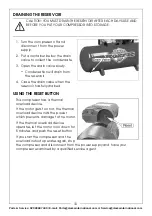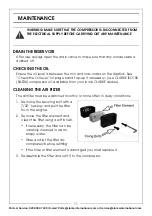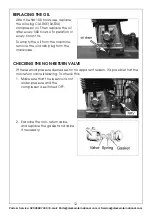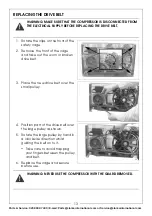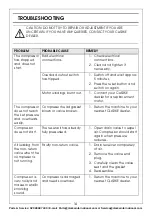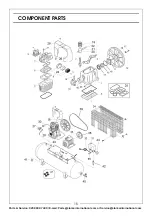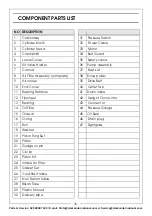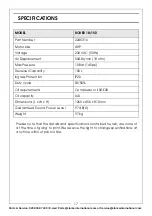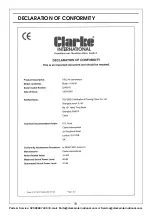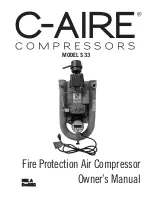
3
Parts & Service: 020 8988 7400 / E-mail: [email protected] or [email protected]
SAFETY PRECAUTIONS
Before using your compressor it is in your own interest to read and pay
attention to the following safety precautions.
1.
Compressed air is dangerous.
DO NOT
point a jet of air at persons or animals, and do
not discharge compressed air against the skin.
2.
DO NOT
operate your compressor with the guard removed.
3.
Repairs must only be carried out by a qualified engineer. If problems occur, contact
your CLARKE dealer.
4.
Before carrying out any maintenance make sure that the pressure is released from
the air reservoir and that the compressor is disconnected from the electrical supply.
5.
DO NOT
leave pressure in the receiver overnight or when transporting.
6.
DO NOT
adjust or tamper with the safety valves. The maximum pressure is factory set,
and clearly marked on the compressor.
7.
DO NOT
operate in wet or damp conditions. Keep the compressor dry at all times.
Similarly, clean air will allow the compressor to work efficiently.
DO NOT
use in dusty
or otherwise dirty locations.
8.
Some of the metal parts can become quite hot during operation.
DO NOT
touch/
remove these until the compressor has cooled down.
9.
ALWAYS
set any pressure regulator to the recommended setting for the tool.
10. When spraying flammable materials e.g. cellulose paint, ensure that there
is sufficient airflow and keep clear of any source of ignition.
11. Before spraying any material always consult paint manufacturers instructions for
safety and usage.
12. Protect yourself. Goggles will protect your eyes from flying particles. Face masks will
protect you against paint spray and fumes.
13.
DO NOT
apply strain to electrical cables and make sure that air hoses are not kinked
or wrapped around the compressor.
14. When disconnecting air hoses or other equipment from your compressor, make sure
that the air supply is turned off at the outlet and vent all pressurised air from within
the reservoir and other equipment attached to it.
15. Make sure that children and animals are kept well away from the compressor and
any equipment attached to it.
16. Make sure that all individuals using the compressor have had any necessary training
and have read and fully understand these operating instructions.
17. Make sure that any equipment or tool used in conjunction with your compressor, has
a safe working pressure exceeding that of the compressor.
18. Be careful when transporting the compressor to prevent tipping over.
19. Permanently installed systems must be installed by a competent engineer.
20. These compressors produce noise levels in excess of 70dB(A). Persons working near
the compressor must be supplied with ear protection.
Summary of Contents for 2245316
Page 20: ......


